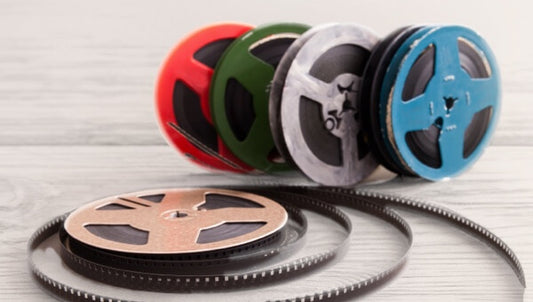There’s something special about holding old printed photos and flipping through family albums filled with memories. Yet, over time, these photos can fade, discolor, or suffer damage from humidity and handling. To preserve them, more people are discovering how to digitize old photos and create lasting, high-quality digital copies. Digitizing not only protects your photos but also makes it easier to organize and share them with loved ones. However, the process can expose delicate prints to scratches, dust, or fingerprints if not done carefully. That’s why Capture’s archival experts share safe, effective ways to digitize photos without damage, including trusted tools, smart scanning tips, and guidance on choosing the right photo scanning service for your memories.
Quick List of How to Digitize Old Photos without Damage
- Use a Flatbed Scanner
- Use a Smartphone App
- Use a Professional Photo Scanning Service
- Use a Digital Camera
How to Digitize Old Photos Safely and Effectively
There’s no single right way to preserve your printed memories. The best method depends on how many photos you have, the tools available, and how much time you want to spend on the process. Below are several proven ways to digitize old photos without damaging them, each with its own benefits for quality, convenience, and preservation.

There are several safe and reliable ways to digitize old photos without damaging them.
1. Use a Flatbed Scanner
A flatbed scanner is one of the most accessible ways to digitize old photos at home. It allows you to scan each print individually and save it as a separate file, making it simple to organize, edit, or share across devices. Although this process takes time, it can produce impressive results when done carefully.
Lower-end scanners may leave images looking dull or grainy, but high-resolution models deliver sharp and vibrant digital copies. A professional-grade scanner, such as the Epson Perfection V600, can capture up to 6400 x 9600 dpi with built-in features for color restoration, dust removal, and fade correction - ideal for preserving vintage photos.
However, because each photo must be placed and removed by hand, this method involves more handling than other digitization options and may increase the risk of scratches or smudges.
Pros
- Good-quality results are possible
- Easy DIY digitization for storing on an external hard drive or cloud storage
- Some options offer higher-quality results with special restoration features
Cons
- Time-consuming because you will have to place each photo in the flatbed scanner one at a time
- More photo handling is required than other options
- Some low-quality options will produce poor-quality digital images

2. Use a Smartphone App
If you want a fast and affordable way to digitize old photos, photo scanning apps can turn your smartphone into a portable scanner. These apps use your phone’s camera to capture and enhance each image, helping you convert printed photos to digital files in just a few minutes. While this method is convenient and involves less handling than a flatbed scanner, the final quality largely depends on your phone’s camera and lighting conditions.
One of the most popular apps for scanning photos is Google PhotoScan because it automatically integrates with your Google Drive account. This makes it as convenient and easy as possible to organize your photo collection. If you have an Apple iOS device, like an iPhone, then you can check out Photomyne apps that can also help you enhance, animate, and give your old photo collection new life.
To digitize photos without damage, place each print on a flat, neutral-colored surface and minimize glare by positioning your light source overhead. You might need a few tries to perfect the angle and lighting, but once you do, a smartphone app can be one of the quickest ways to safely preserve your memories.
Pros
- Affordable (if you already have a decent smartphone camera)
- Easy and convenient
- Many photo-scanning apps offer additional features to improve the quality of digital files
Cons
- Relies on the quality of your smartphone camera to digitize your old photos, so the quality may suffer
- May show more reflections, dust, glare, and background
- Can be difficult to get lighting and quality right

3. Use a Professional Photo Scanning Service
For the highest-quality results and the safest handling of fragile prints, many people turn to professional companies that digitize photos. Reputable companies such as Capture, Legacybox, and ScanCafe specialize in digitizing old photos using advanced equipment and strict handling protocols to protect every memory. These services often provide extra features like color restoration, cloud storage, and slideshow creation, making it easier to preserve and share your family history.
At Capture, every photo is tracked through a secure, multi-million-dollar monitoring system that ensures your memories stay safe from start to finish. Our team offers unmatched quality, affordability, and the world’s first touchless photo album scanning service, allowing entire albums to be digitized without ever removing or handling the photos.
Whichever company you choose, it’s worth reviewing pricing, turnaround time, and photo size compatibility before sending your collection. Comparing services will help you find the best option for your needs and the safest way to digitize photos without damage.
Pros
- Professional quality results with any reputable photo digitizing service
- Security for your old photos with companies like Capture who spend a fortune to protect your photos
- Extra features like smart chapters and slideshows, scratch reduction, color correction, cropping, and, if you choose Capture, touchless photo album scanning
Cons
- Pricing structure varies from one service to the next, but can be expensive with some options
- Some services may only accept certain photo sizes (Capture accepts photos from 2” x 2” up to 8” x 12” and photo albums up to 14” x 14”)

4. Use a Digital Camera
A digital camera can be an excellent option if you want to quickly preserve your old photos and protect them from fading, fire, or water damage. Digital cameras usually capture higher-quality images than smartphone cameras, allowing you to create clear and detailed digital versions of your printed photos. However, this method often requires using photo-editing software such as Photoshop or Lightroom to restore color, adjust lighting, or remove dust.
With a little practice, you can take multiple shots of each photo, compare the results, and keep the best one. Modern cameras offer ample storage and precise focus settings, helping you get the lighting just right. Afterward, save your new digital files to an SD card, external drive, or cloud storage to keep them organized and protected.
We recommend learning how to digitize old photos at home with a digital camera by starting with a dimly lit room for the best results. Most modern cameras have lighting adjustments to brighten the image, but external lighting can contribute to glare. Choosing the highest-resolution camera available within your budget will help preserve every detail of your memories.
Pros
- Fast, easy, and convenient
- Higher quality images than you can get with smartphone cameras
- Most modern cameras have lighting adjustments, auto-focus, and other settings that can make it easier
Cons
- May have to practice and use trial and error for good results
- May risk damaging photos by removing them from photo albums to reduce glare
- Will require additional photo editing software for color correction, scratch removal, photo enhancement, etc.

Tips for How to Digitize Old Photos without Damaging Them
Your family photos are priceless memories, and proper care during digitization ensures they stay safe for future generations. Below are some practical tips to help you digitize photos without damage, minimize handling, and keep each image in the best possible condition.

We know how important your family photos are, which is why we want to give you some tips to help you with digitizing your photos without damaging them. Keep reading to learn all the best photo-handling practices and tips.
1. Preserve Them as Soon as Possible
Old photographs naturally fade, discolor, or become brittle with age. The sooner you preserve them as high-quality digital files, the better your chances of saving fine details and colors before they deteriorate. Once digitized, you can enjoy your images freely without putting the originals at risk.
2. Choose a Method That Minimizes Handling
The more you handle a photo, the greater the chance of scratches, creases, or fingerprints. Select the photo digitization method that requires the least physical contact. A flatbed scanner involves more handling than a digital camera or a professional photo scanning service. The safest option for albums is Capture’s touchless photo album scanning service, which preserves every image without anyone touching the prints.
3. Hold Photos by the Edges
Oils and moisture from your hands can damage delicate prints. Always hold photos by the edges and wash your hands before starting the process. For added protection, consider using soft, powder-free nitrile gloves to avoid smudges or residue.
4. Keep the Area Clean and Controlled
Set up your scanning area in a clean, dry, and well-lit space. Remove any dust, food, or drinks that could harm your photos. Avoid using paper clips, tape, rubber bands, or sticky notes to separate stacks; they can easily tear or stain older prints.
5. Remove Dust Gently with Microfiber
Dust particles can show up clearly in digital scans. Before digitizing, use a soft microfiber cloth or an air bulb blower to gently clear away any debris. Avoid tissues, paper towels, or brushes, as they can scratch or leave marks on the photo surface.

Knowing how to digitize old photos without damaging them lets you preserve your memories with confidence.
Preserve Your Memories by Digitizing Old Photos the Right Way
Now that you know how to digitize old photos without damaging them, you can preserve your family memories for generations to come. Whether you choose a flatbed scanner, smartphone app, digital camera, or professional service, each method has its benefits - what matters most is protecting your originals while creating high-quality digital copies.
If you’d like to explore a secure, expert option for photo digitization, Capture offers professional-grade scanning with advanced tracking systems and innovative touchless technology that keeps your prints completely safe throughout the process.











